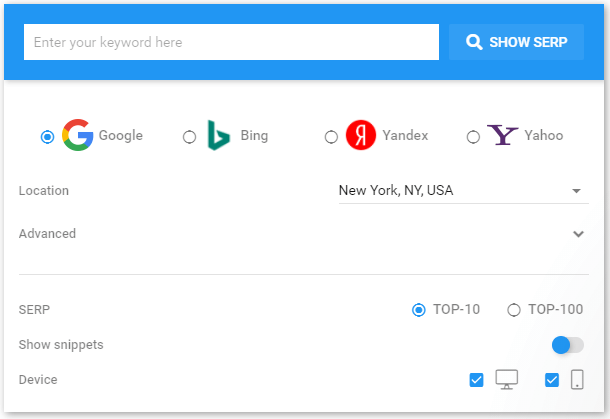Trust is an important factor in ranking websites, but many webmasters are not aware of it. When talking about online searches, trust refers to the kind of authority and quality of a website’s credence. Google uses this to rate the dependability, reliability, and trustworthiness of a website and to determine if the content is safe for users.
Google TrustRank is a website analysis algorithm that Google uses to combat web spam and determine the trust signal of a website. These trust signals are then used to evaluate other ranking factors’ legitimacy, such as the quality of links and contents. TrustRank was initially developed by researchers at Stanford University, Hector Garcia-Molina and Zoltan Gyongyi, and Yahoo. However, Google has revealed that they have inculcated it into their algorithm and is an essential factor for ranking websites.
Why is Google TrustRank Important?
The Google TrustRank is important, not only to websites but to Google as well. Google understands the concept of people doing business with those they like, which is the principle behind the Google TrustRank.
The priority for Google has always been to give its users the best search experience that they can get anywhere. So, if the trust signal of a website isn’t good enough, the website wouldn’t be shown to users in the SERPs. A user’s experience is strongly linked with the quality of results that they get in their Google searches. For Google, this means displaying trustworthy websites with consistent, high-quality content to ensure that their users can continue coming back.
The users are unlikely to come back provided that Google displays poorly rated or non-trusted sites on the result page, and this means that there’ll be nobody on Google to see and click on ads. This is why the TrustRank is important to Google. Non-trusted websites can massively affect their revenue, and to put it into perspective, 85% of Google’s income comes from ads. Google made a revenue of $116 billion from ads out of total revenue of $136.22 in 2018. So, the TrustRank isn’t something to joke with, not for Google or the website owners, if they want any traffic on their website.
See Also: What Businesses are in High Demand Right Now?
How Does Google Rank Website Using the TrustRank?
The higher a site’s TrustRank, the higher it will rank on Google SERP. Google uses trust signals to evaluate the genuineness of other ranking factors. This means that if they flag a website as harmful (it might be using Http and not https), or the quality of the content is low, or the backlinks are from other lower websites, it would have a low trust level.
Once a site is given a low TrustRank on Google, it would rank very low in search inquiries. It works the same way for websites with high TrustRank (they rank high on search inquiries). As a website owner, it is essential to you that Google views your website as reliable and trustworthy. This means that you have to increase the TrustRank of your website, and you do this by maximizing your website’s trust.
11 Factors that Determine Your Site’s TrustRank
According to John Peterson of proessaywriting.com, to improve the TrustRank and ranking of your website, you have to work on some important factors.
These factors maximize your site’s TrustRank:
1. Quality of backlinks
There must be high-quality links to your website coming from authority websites. The fact that Google sees those websites as trusted websites and they link back to you will give your website some credence. Other links from A-list industry blogs, .gov sites, .edu sites, etc. are also considered respectable and good for your website. However, if you’re getting links from low-quality, cheapjack websites, Google would consider you the same as them. Another important thing is the number of quality backlinks that you get. Once you begin to get more authority websites to link back to your website, Google thinks you must be popular and very credible, which boosts your TrustRank.
2. PageRank of sites linking to you
This is still in line with getting high-quality websites to link to yours. Checking the PageRank of a site before adding the links is essential as the TrustRank depends directly on the PageRank.
3. Be consistent
Consistency is a significant factor for Google. You’re never going to rank well on Google by posting today and disappearing for months before coming back to publish another blog post. It doesn’t work that way. Google appreciates consistent websites and blogs. Update your old posts and continue to publish new ones; that’s how to stay consistent.
Related: Understanding How Content Marketing Can Drive Sales
4. Avoid controversial topics
Some topics are quite contentious such as gambling and pornography, and you must avoid them if you don’t want Google to frown at your website.
5. Domain age
This commonly refers to how long your domain name has been existent, but that’s not all. It also refers to how long it will continue to exist. So, having a domain name that’s registered for three years, for instance, assures Google that you’re sticking around for a more extended period compared to other domains registered for just one year. This way, you’re showing your level of commitment to Google.
6. Blockings
if too many users block a website, it’s easy to conclude that it is bad. Google often takes into consideration the number of chrome users that have blocked a site when rating its TrustRank. In summary, avoid getting blocked by your website visitors.
7. Be public with your Whois
This means that you’re only trying to show transparency. A trustworthy website will not have any issues with transparency, as there’s nothing to hide. When trying to stop others from spamming you, you should use the Whois privacy.
8. Security certificates
You’re never going to be ranked high if you’re using HTTP. Since October 2017, Google has been flagging non-HTTPS websites as “INSECURE.” This means that you’ll be losing a lot of traffic, but apart from this, Google itself wouldn’t trust your website.
9. Dedicated server/unique IP address
If your website is hosted by a public IP address that a lot of other websites also use, there’s a high possibility that some of these other websites are involved in some shady businesses online. Sharing the same hosting or IP as they can gravely affect your website’s reputation. This is why it’s essential to use unique/dedicated hosting and IP for improved SEO ratings. If you lack the funds to get reliable service, the least you can do is use a trustworthy web host and has fee sites per server.
10. About Us page
This page lets Google know that you commit what you’re into. The page must be thorough.
11. Contact details with physical address
This is ideal for eCommerce stores and online businesses, and sites that require users to input their credit card details. Including your contact details with a physical address assures both the visitors and Google that you’re human and not bots.
See Also:
Conclusion
Maximizing the TrustRank of your website is essential to increase your ranking. While it’s critical to have great content and other SEO technicalities, your competitors will beat you to a top position on the rank provided that your website lacks trust. As Google uses TrustRank to combat web spam, you can easily fall off the first page with just one mistake if your TrustRank is low. However, a healthy TrustRank gives you some leverage.
Do you need a thorough analysis of Google rankings for keywords in any country? Try SpySERP tool: https://spyserp.com/serp-checker

Hope you liked the article. If you have any suggestions, leave a comment down below.
John Peterson is a journalist with four years’ experience working in London magazine “Shop&buy” and providing term paper help and essay help. He is a professional mini-tennis player, and he has written the novel “His heart.” You can find him on FB.





















